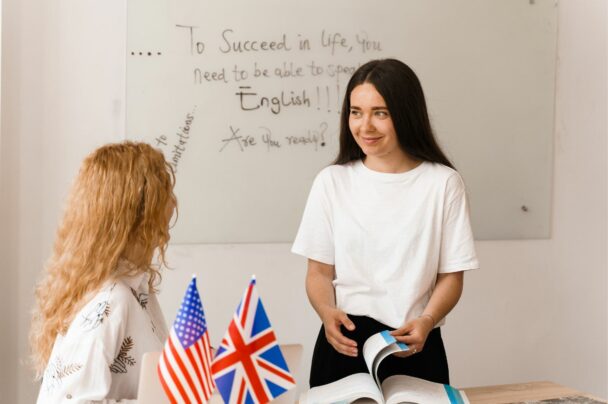Description
Targeted to A1 speakers. Read more »
At the A1 CEFR level, learners focus on acquiring basic language skills. They can understand and use simple expressions to meet immediate needs, introduce themselves, ask basic questions, and engage in simple interactions.
Many teachers and educators feel they cannot take part in international mobility because they lack, or they think to lack, adequate communication skills in English.
This course is designed to support European teachers who feel uncomfortable taking part in international projects because of limited English abilities.
It will activate and improve their capacity to communicate in English to make them feel more confident to help them use English without being afraid of making mistakes and becoming a member of an international team.
The participants will take part in engaging and fun activities that foster all four language skills: listening, speaking, reading, and writing.
The course will cover, among others, topics such as introducing themselves and their professional environment, presenting their country, culture, and traditions, and creating an innovative and interdisciplinary project activity that will foster communication and collaboration among international project partners.
The participants will also get to know the new European School Education Platform with the stress on eTwinning and how to create and run a project according to the eTwinning quality criteria.
By the end of the course, participants will get a handful of project activity examples, they will learn how to create interactive and collaborative activities.
They will be able to set up and start their own projects which will allow them to use and continue to learn English making their school more visible in an international context.
What is included
Learning outcomes
The course will help the participants to:
- Learn English by developing all four language skills;
- Use English in international projects and teams;
- Navigate the European School Education Platform;
- Use the eTwinning platform (eTwinning Live and Twinspace);
- Create international project activities;
- Use some simple digital tools to foster language skills.
Tentative schedule
Day 1 – Introduction to the course
- Introduction to the course, the school, and the external week activities;
- Icebreaker activities;
- Presentations of the participants’ schools;
- Individual orientation;
- ESEP – European School Education Platform;
- eTwinning for teachers and students.
Day 2 – Listening skill – listen, understand, speak
- Collaborative communication activities – This is me!;
- Speaking about yourself, active listening, and speaking (looks, character traits, hobbies, and free time).
Day 3 – Fieldwork – Let’s go out and use English!
- English all around us;
- Intercultural communication activities in the city.
Day 4 – Presenting fieldwork results
- Reading and writing (skimming and scanning);
- Interactive reading activities supported by questions and research;
- Cultures, countries – writing, and spelling;
- Different types of written communication.
Day 5 – Drafting an eTwinning project
- Presenting project ideas following the quality criteria;
- Setting up international teams.
Day 6 – Course closure and cultural activities
- Course evaluation: round-up of acquired competencies, feedback, and discussion;
- Awarding of the course Certificate of Attendance;
- Excursion and other external cultural activities.






